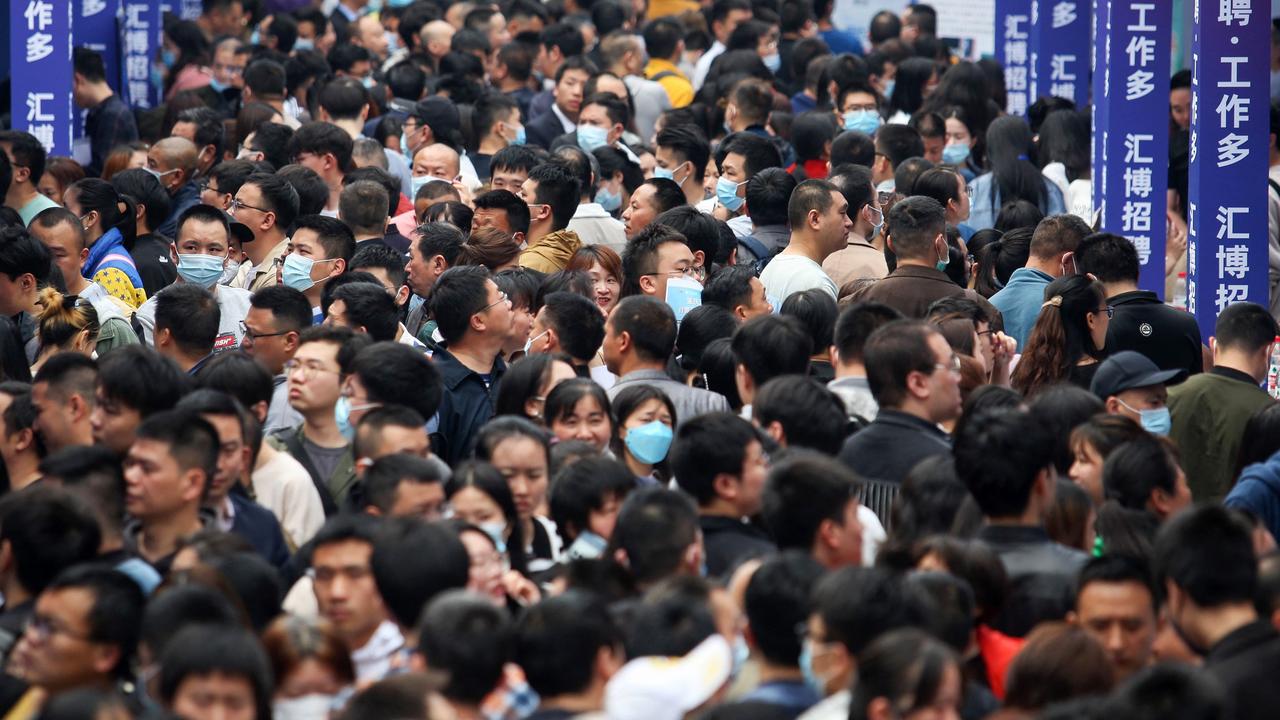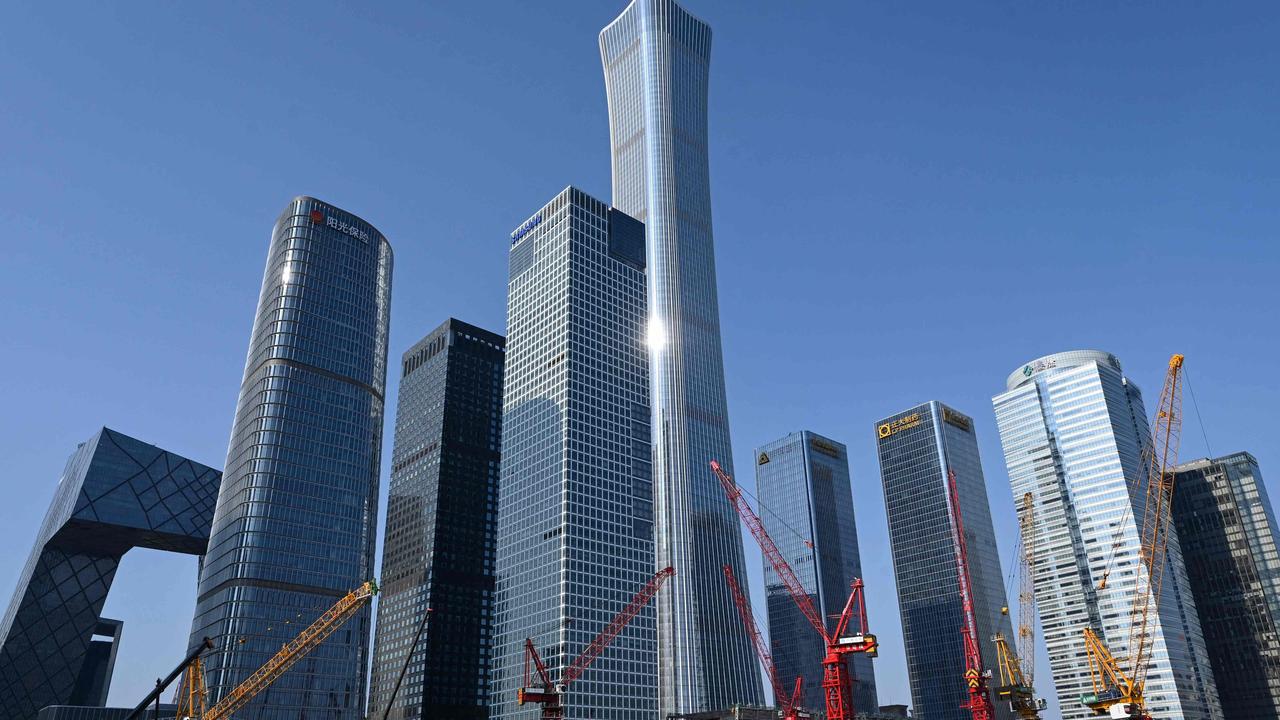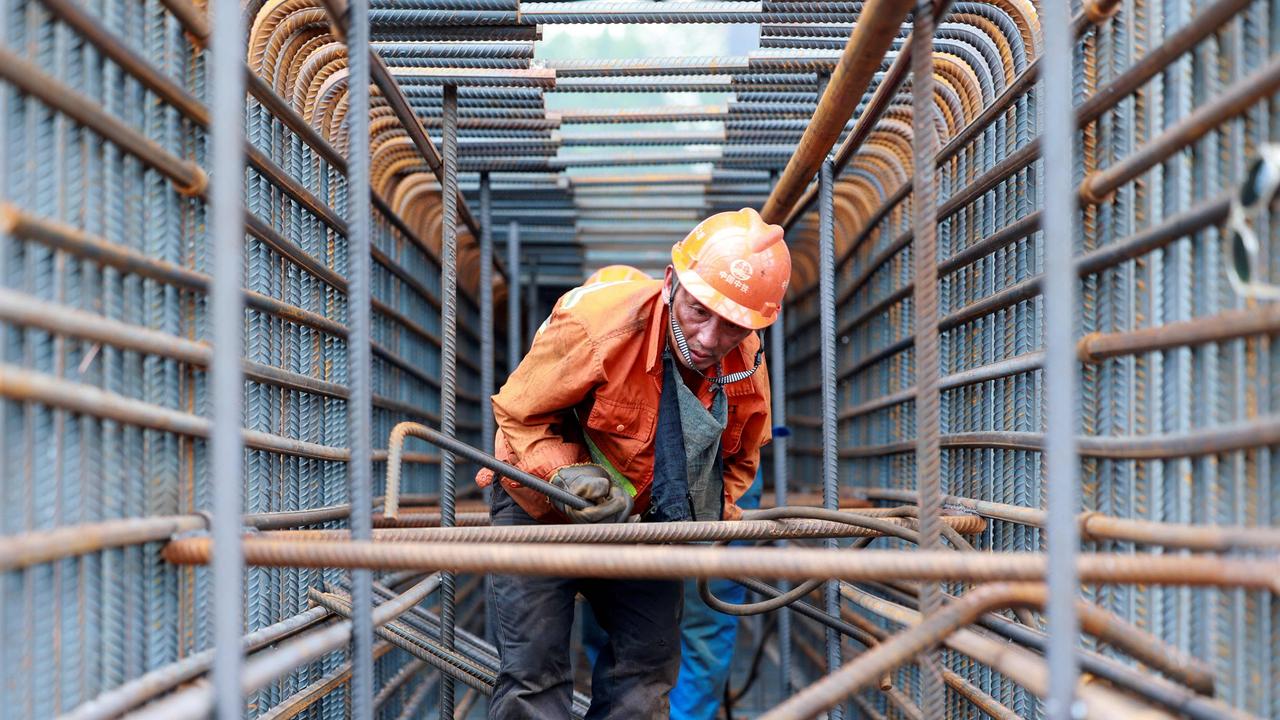‘Full-time kids’: China’s devastating crisis as youth unemployment rate understood to have hit 47 per cent
China is facing a shocking economic and social crisis as its millions of young people are forced to become “full-time kids”.
China is facing a shocking economic and social crisis as millions of young people find it impossible to find a job — with the nation’s youth unemployment rate tipped to have hit a staggering 46.5 per cent this year and young people forced to become “full-time kids”.
The nation’s top leaders admitted this week that all was not well with the Chinese economy.
On Monday, they said the nation was facing “new difficulties and challenges” as its post-Covid recovery fizzles out and among the dismal figures released — there was one statistic that jumped out.
Youth unemployment jumped to a record 21.3 per cent in June, up from 20.8 per cent in May — and the problem may be much bigger than official data suggests.

Zhang Dandan, an associate professor at Peking University, wrote in an opinion piece last week for news outlet Caixin that if 16 million young people “lying flat” at home or relying on their parents were included, and therefore not actively looking for work, the true unemployment rate for youth could have been as high as 46.5 per cent in March.
‘Full-time kids’
The crisis is so bad that there are now tens of thousands of young Chinese people being paid by their families to stay home.
Litsky Li, 21, told CNN she gave up her job as a photographer and now spends her days grocery shopping for her family in the central city of Luoyang and caring for her grandmother, who has dementia.
Her parents pay her a salary of 6,000 yuan ($1250) a month, which is a good middle-class wage in her area.
“The reason why I am at home is because I can’t bear the pressure of going to school or work,” she told the network.
“I don’t want to compete intensely with my peers. So I choose to ‘lie flat’ completely,” she said, using a popular phrase that refers to eschewing gruelling hours and traditional family values in favour of pursuing a simpler life.”
She isn’t the only one, with CNN reporting a phenomenon of “full-time sons and daughters,” a label which first appeared on popular Chinese social media site Douban late last year.
Most of the tens of thousands of young people identifying as such on social media say they’re retreating home because they simply can’t get work.

World watching as China falters
World markets have been rallying this week as global inflation appears to be slowing, but there is great concern about what is happening in China.
In a meeting of the 24-person Politburo on Monday — the shocking state of the nation’s finances were laid bare.
The country’s highest-ranking officials gather annually at the end of July to review the economic situation before their traditional summer break in August.
This year, they met as the post-Covid recovery in the world’s second-largest economy was running out of steam, due in large part to sluggish consumer spending.
“The meeting pointed out that the current economic operation is facing new difficulties and challenges, mainly due to insufficient domestic demand, operational difficulties for some enterprises, high risks and hidden dangers in key areas, and a complex and severe external environment,” a readout of the meeting on state broadcaster CCTV said.
The Politburo agreed on Monday that China must “implement precise and effective macroeconomic regulation, strengthen countercyclical regulation and policy reserves”, according to CCTV.
The meeting, headed by President Xi Jinping, also called for efforts to expand domestic consumption and “adjust and optimise real estate policies in a timely manner”, CCTV said.
Dismal data
A run of dismal economic data over recent months has ramped up calls for officials to unveil support measures.
China this month said its economy grew 6.3 per cent in the second quarter, much weaker than the 7.1 per cent predicted in an AFP survey of analysts.
The disappointing result came in spite of the very low base of comparison with last year, when the country was hit by a series of Covid lockdowns in major cities.
In quarter-on-quarter terms — considered a more realistic basis for comparison — growth came in at 0.8 per cent, well down from the 2.2 per cent seen in January-March, the first full period after the removal of zero-Covid restrictions.

And the property sector remains in turmoil, with major developers failing to complete housing projects, triggering protests and mortgage boycotts from homebuyers.
While the People’s Bank of China last month cut interest rates and authorities pledged to help the troubled property sector, there has been very little concrete action out of Beijing.
“The key to watch from the meeting is not specific policy measures, but the policy tone set by top leaders,” Macquarie economist Larry Hu wrote in a note.
“The government mentioned ‘strengthening countercyclical policies’ but the tone related to fiscal and monetary policies seems not significantly different from before,” said Zhiwei Zhang, chief economist at Pinpoint Asset Management.
Zhang said the call to support the property sector appeared to show that the government has “recognised the importance of policy change in this sector to stabilise the economy”.
More Coverage
“We don’t expect policymakers to unleash a bazooka-like stimulus package,” Hu of Macquarie said. “More likely, they would continue to roll out stimulus measures in a piecemeal way.” China on Friday last week unveiled a number of measures to encourage the purchase of automobiles, while other measures have also been announced to promote artificial intelligence and electronics consumption.
Beijing is aiming for about five per cent growth this year, one of the lowest targets set by the Asian giant in decades, and one that Premier Li Qiang has warned will not be easy to achieve.
— with AFP






